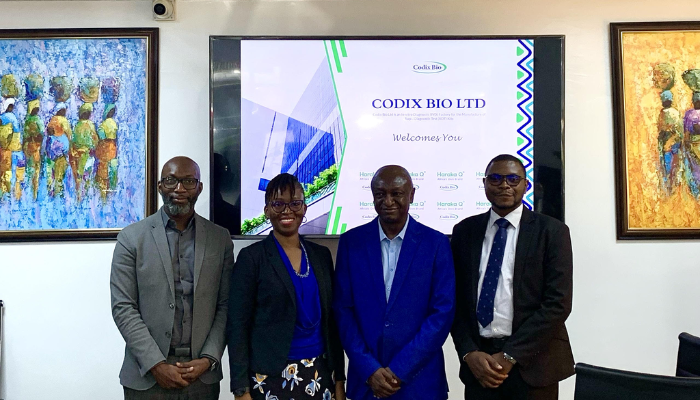In a significant push for localised medical manufacturing, Nigeria’s Codix Pharma has established a production facility described by company officials as a first of its kind in West Africa for diagnostic test kits for malaria, HIV, and Hepatitis among others.
While government-backed factories serve specific markets in North Africa, and other outfits exist in South Africa, Codix Bio, an in-vitro diagnostics factory, represents uncharted territory for West Africa.
This push into local diagnostics production by the company aims to directly support Nigeria’s ambitious national targets for healthcare self-sufficiency.
Muhammad Ali Pate, coordinating minister of Health and Social Welfare, has outlined goals to capture at least 15 percent of Africa’s pharmaceutical market share and meet 70 percent of domestic pharma and 30 percent of IVD needs locally by 2030.
By manufacturing essential diagnostic kits within Nigeria, Codix Bio hopes to contribute tangibly to achieving these objectives and reducing the nation’s reliance on imported essential medicines and healthcare supplies.
Mary Ogangwu, chief operating officer at Codix Pharma, stated that the company expanded its medical diagnostic capacity in response to identifying a critical gap in effective diagnostics for infectious diseases.
“Through the years, we have engaged our patients and stakeholders. These engagements have helped us to understand the patient’s pain points and the gaps in accessing these essential diagnostics tools. Until now, over 90 percent of the rapid diagnostic test kits used in Africa were imported from regions such as Europe, North America, and Asia,” Ogangwu.
“This moment is bigger than us, it is about what is possible for Africa, what is possible when innovation meets intention, when a country decides to invest in its own capacity rather than rely on others.”
Looking beyond Nigeria’s borders, the development of local manufacturing capacity by companies like Codix Bio contributes to a broader vision of African self-reliance in healthcare.
It challenges the narrative that the continent must primarily rely on aid or imported solutions, proving that African problems can have African solutions and that high-quality manufacturing standards can be achieved locally.
According to Olanrewaju Balaja, general manager, Codix Bio Ltd., the company is committed to the production of high-quality, safe, and efficacious in-vitro diagnostic (IVD) products.
“Every unit that leaves our facility complies with the marketing authorization granted by NAFDAC, ensuring consistent and reliable performance,” he said. “As part of our strategic growth plan, Codix Bio is expanding its footprint beyond Nigeria into West Africa and international markets, targeting the World Health Organization (WHO) prequalification. This will enable global distribution and strengthen our role in delivering dependable diagnostic solutions.”
He noted that the quality framework is built on quality, safety and efficacy.
The company’s venture, however, comes with inherent challenges, particularly a lack of locally available, specialised human capital, as existing educational programs focus on pharmaceuticals rather than the nuances of medical device production.
A critical component enabling Codix Bio’s ambition to launch West Africa’s second large-scale medical device facility lies in a strategic academic partnership within Nigeria.
Recognising the absence of specialised training locally, the company collaborated with Olabisi Onabanjo University (OOU) to introduce a dedicated course on biosensors and nanotechnologies.
With approximately 138 science students already enrolled, this initiative, lauded by Codix officials as crucial and visionary, directly tackles the human capacity challenge, building the skilled workforce essential for sustainable local production from the ground up.

